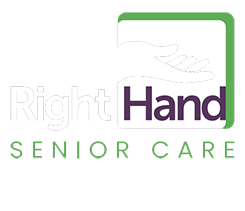On the other hand, you will be required to meet certain standards or goals set by the franchisor and operate according to their preset processes and methods. So what would you, as the franchise owner, be responsible for? First, let’s take a look at what the franchisor has control over.
Franchisor Responsibilities
Advertising and Branding — This includes things like company signs, logos, products, uniforms, services, and marketing materials. The key is consistency across every location. If each franchisee chose their own brand colors or custom business signs, it would be difficult for customers to associate them with the franchise. Just imagine how confusing it would be if the “golden arches” could be any color the franchisee wanted. Some companies allow you to create your own local advertising, but you will still be required to stay on brand.
Systems and Protocols — It varies by franchise, but generally, a franchisee will be expected to follow established operating procedures. For example, specific employee training methods or financial reporting processes. Of course, a business that has become successful enough to franchise got there by developing and implementing proven systems and processes, so it will be enormously beneficial for you to comply with these procedures, rather than trying to build your own from scratch.
Training and Support — When you purchase a franchise, the franchisor is expected to provide extensive training on how to run your new business. Your success is their success, so they should equip you with all of the knowledge and tools you need. Ongoing support varies by franchise, but a good franchisor will have resources available to help you run, manage, and scale your business.
Franchisee Responsibilities
Human Resources — As a franchisee, everything from recruiting to hiring to payroll is your responsibility. So you will have ultimate control over your staff and be able to build your team to suit your needs. But it works the other way, as well. Your team members will expect proper guidance, leadership, training, and management from you.
Finance and Accounting — While the franchise may have an internal system that you will need to use for accounting and other financial tasks, you are still responsible for making sure that all financial data is entered and managed correctly and consistently. In addition, the franchisee is solely responsible for the franchise fees and operating costs.
Generating Revenue — The franchisor has licensed you to use their brand, their name, and their products or services, but it’s up to you to take those resources and build a client base. The biggest benefit of owning a franchise is that their name and brand are already established, but you are still responsible for ensuring that your business meets the company standards that clients or customers have come to expect.
Success — A franchisor can give you every tool and every bit of training that you need to be successful, but ultimately, it requires hard work, dedication, and drive on your part to achieve success. Brand recognition and customer loyalty will only take you so far. You have to be willing to put in the work to build up your business and run it well.
At Right Hand Senior Care, we believe in giving our franchisees the right tools, training, and ongoing support to become successful business owners.
So what are you waiting for? Get in touch today and change your future with a Right Hand Senior Care franchise.
